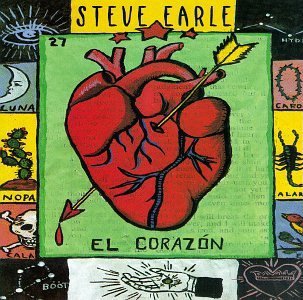Squawk Radio
Sunday, January 22, 2006
Liz Gives You Music to Carry Around Long After It's Gone
 A lot of people consider their favorite book by any given author to be the one by that author they happened to read first. No matter how many other books they read by the same writer, and no matter how much better the writer and books become, it’s still the first one the reader stumbled upon that remains their favorite. I’ve discovered that, for me, at least, this is also true of musicians and singers. My favorite album by almost anyone tends to be the one I listened to first. Especially if that artist creates a sound and style that’s totally unique.
A lot of people consider their favorite book by any given author to be the one by that author they happened to read first. No matter how many other books they read by the same writer, and no matter how much better the writer and books become, it’s still the first one the reader stumbled upon that remains their favorite. I’ve discovered that, for me, at least, this is also true of musicians and singers. My favorite album by almost anyone tends to be the one I listened to first. Especially if that artist creates a sound and style that’s totally unique.Such is the case with “El Corazon” by Steve Earle, who I sincerely doubt could make a bad album if he tried. Another artist who is hard to categorize, Earle takes elements of country, rock and bluegrass and melds them into a sound all his own, punctuated by gritty, weary vocals that command the listener to, well, listen. And what a treat when the listener does. Lyrically, the album is a collection of poems. Odes. Ballads. Elegies. Poems of love and anger and celebration. They just happen to have really EXcellent music to back them up, music that is as evocative and mood-creating as the words themselves are.
There are so many remarkable songs on “El Corazon” that I could sit here all day writing about them. The strongest on the album, though, in my opinion, is the haunting “Taneytown,” which I often use as an example in writing classes to show writers how to use language to evoke time, place and setting. Without ever mentioning where or when the action in the song takes place (and it’s pretty ugly action; the song is about racism), the listener knows exactly where and when the action is taking place. The reliance of the accompanying music on minor chords only emphasizes the feeling of alienation and the certainty of the tragedy that ultimately occurs. (And it doesn’t hurt to have Emmylou Harris singing backup. On other songs, the Supersuckers and Del McCoury Band show up, among others.)
At the other end of the spectrum is the much lighter, much more fun “Telephone Road” about a young man who’s just left home for the first time and is discovering the joys of spending his paycheck. Equally upbeat, but more poignant, is “N.Y.C.” about another young man hitchhiking his way across the country and the driver who picks him up and sees in him all the joys of youth he missed himself. And “Here I Am” is a song I’ve tried to adopt as my personal anthem, because it’s a celebration of who we, as individuals are, and accepting the people we have become without offering apologies or experiencing regrets for the things we’ve done and said, since, hey, that’s a big part of what’s made us us.
But for all his social commentary and observation of the human condition, Earle is also a major romantic. In “Somewhere Out There,” the singer has been separated from the woman he loves and is telling the dark night about all his fears and desires and need to be with her again. In “If You Fall,” the singer is warning another man that he better not fall in love, because he’ll never be the same after he does. And he should know, since in "I Still Carry You Around," the singer is obviously still in love with a woman who left him a long time ago.
Oh, don’t get me started on what a great CD this is. Oops. Already did.
“El Corazon” is one of those rare albums where every single song is a gem. You never want to hit the skip button to get to the next selection, because every time a song begins, you think, “Oh, I LOVE this one.” No two are similar. But every one is a delight. And every one will stay with you long after the album is done.
Elizabeth Bevarly, 11:35 AM
4 comments